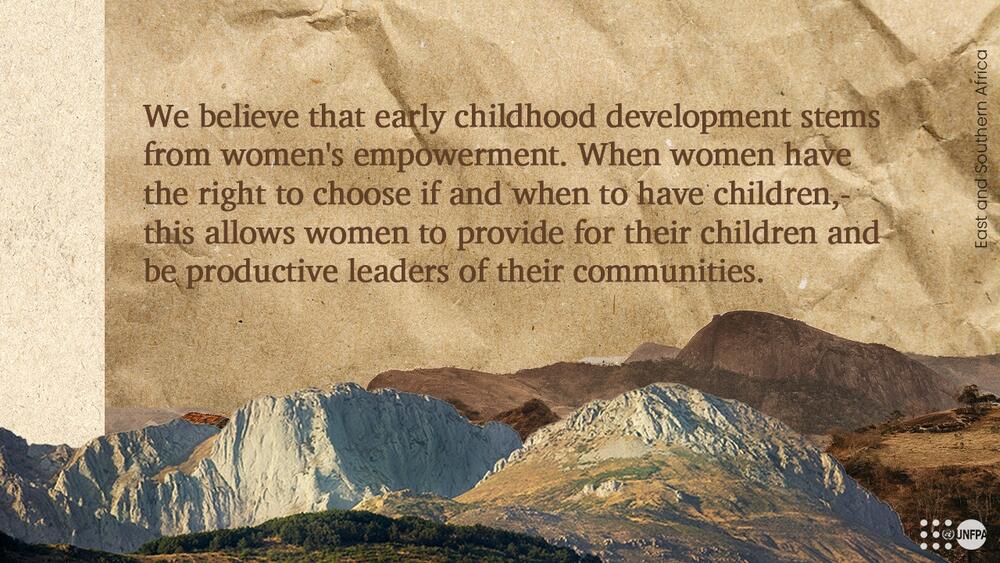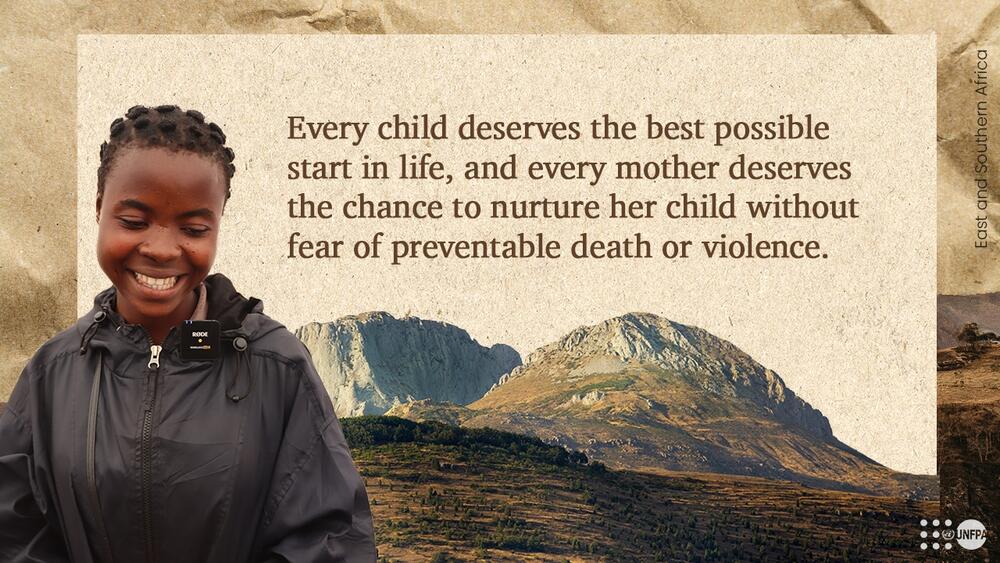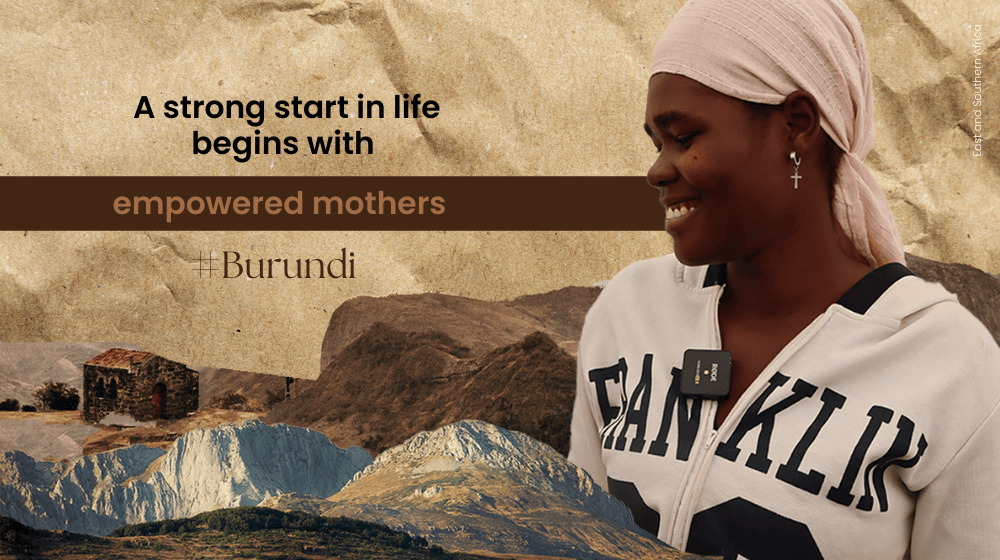By Lydia Zigomo,
Regional Director, UNFPA East and Southern Africa
As I returned from my recent mission to Burundi, I was reminded of the story Grace. At a gathering, the young woman shared her story, and the room fell silent as she narrated what was happening not just in the country but across the region.
Grace became a mother at the age of 14, her young life upended by bad company and poor economic outlook. She was lured into the world of sex work and later becoming a victim of trafficking. One loss of potential is too many and I reflected on this situation. How can we stop this from happening, and alter the course of the future of our youngest generation?

My experience in Burundi left a lasting impression, as I witnessed both the progress and the challenges faced by communities in ensuring that every child receives a fair start in life to have bigger chances of succeeding in the future. One thing came clear – early childhood development (ECD) is the foundation for the future of this country. However, it starts with the well-being of the mother.
Transforming lives in Burundi
With strong roots in our mandate, our goal is simple but with the transformative power to change lives: to ensure that every child is born safely, grows up healthy, and is protected from harm. We call these three transformative results and by 2030, we are envisioning a Burundi, and a world with zero preventable maternal deaths, zero unmet need for family planning, and zero gender-based violence (GBV) and harmful practices.
The World Health Organization (WHO) said that a woman whose pregnancy is monitored by qualified healthcare personnel increases healthy delivery by 87 per cent. For Burundi, there will be less maternal and neonatal deaths, which means a healthier start for children, and a better chance at reducing child mortality. For sure, when mothers can access family planning, they can plan their pregnancies, recover between births, focus on their newborns and be economically empowered . Family planning can reduce maternal mortality by 30 per cent and infant mortality by 20 per cent.

We believe that early childhood development stems from women's empowerment. When women have the right to choose if and when to have children, this allows women to provide for their children and be productive leaders of their communities.
Layered crises
Burundi, like the rest of the region, is dealing with climate change and humanitarian crises, which affect women and children and increase the risk of maternal and neonatal mortality. The flood and food insecurity are increasing rates of stillbirth and malnutrition. We cannot overlook these factors in our efforts on improving early childhood development. This is why UNFPA has pledged to work closely with the government and other partners to include the critical sexual and reproductive health services in the national disaster response plans.
Being in Burundi and visiting an internally-displaced people (IDP) camp at Mubimbi brought the issue of teenage mothers and sexual violence into sharp focus. Visiting with displaced people—over 6,600 of them, many from fishing communities due to climate change-induced flooding—was overwhelming. What I saw highlighted the urgent need to educate young girls about sexual and reproductive health and rights (SRHR). Some of them were having babies as young as 15, and one mother, at 33, had already given birth to seven children. They were also survivors of rape, as the vulnerability of being on the move increases risks for girls.
To make a positive impact in the lives of these girls, women and displaced communities and their children, we need to work more closely together, harnessing all our efforts from a multi-sectoral angle. There is a need to support the coordination of health, education, and social services, and community leaders. No single agency or stakeholder can achieve this alone, and I am heartened by the commitment of Burundi’s leaders to work with us, together with the participation of women leaders. Women’s involvement in shaping multi-sectoral policies will ensure that these policies are rooted in the realities faced by families across Burundi both in development or humanitarian setting.

Every child deserves the best possible start in life, and every mother deserves the chance to nurture her child without fear of preventable death or violence. By uniting our efforts, we can give every child in Burundi the opportunity to grow up healthy, empowered, and ready to contribute to the future of this beautiful country.
Murakoze cane.



